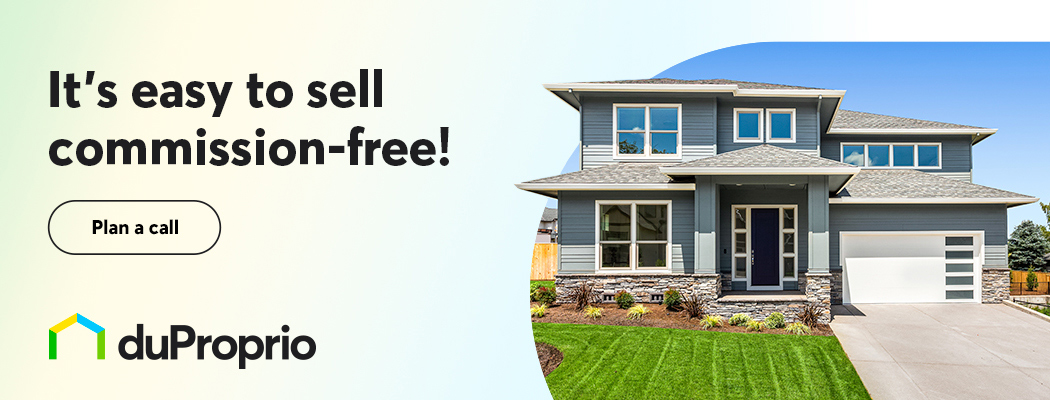

5 ways to prepare financially for your home-buying project
Last updated on April 25, 2024
Buying a home is one of the most important decisions in the life of an individual or a couple. Whether it's your first transaction or part of a larger real estate project, careful financial preparation is essential in order to succeed. Here are 5 tips to get future homeowners closer to their home-buying project, from building an emergency fund to proactively managing your finances.
With the right planning, it's possible to realize your dream of becoming a homeowner!
Summary:
- 1. Assess your borrowing capacity
- 2. Pay off your debts
- 3. Draw up a sound budget
- 4. Save for the down payment
- 5. Changing consumer habits
1. Assess your borrowing capacity
The best way to assess your borrowing capacity is to meet with a financial advisor. By analyzing the buyer's assets and income, the expert will be able to determine the potential for home ownership. Is income sufficient to repay a mortgage and other debts? Your financial advisor will guide you step by step. It's best to arrange this meeting at the very beginning of the buying process, even before you start house-hunting.
Apply for mortgage pre-approval
A mortgage pre-approval is a preliminary assessment of a borro+wer's ability to obtain a loan for the purchase of a property. The process involves submitting a mortgage application to a financial institution that will review your income, debts and credit history.
Based on this information, the lending party will determine the maximum amount they would be willing to lend you. This will allow you to identify properties that are within your purchase price range. However, it's important to note that a pre-approval is not a loan guarantee - further steps will be required before the deal is finalized.
2. Pay off your debts
A good way to clean up your personal finances is to start by paying off your debts. Once this has been done, it will be easier to save and build up a downpayment. A buyer with little debt and solid financial capital will have the opportunity to save on borrowing costs and interest.
3. Draw up a sound budget
To avoid unpleasant surprises when you become a homeowner, it's best to draw up a realistic budget that takes into account your ability to repay the mortgage and all property-related payments. These expenses include municipal and school taxes, heating, electricity, co-ownership fees (called common charges) in the case of a condominium, and various maintenance costs (snow removal, renovations, exterior maintenance, etc.). You'll also have to cover real estate transfer duties (known as the welcome tax), notary fees and moving expenses.
Obtain information on the financial support available for your home-buying project
Federal and provincial government agencies, such as the Canada Mortgage and Housing Corporation (CMHC) and the Société d'habitation du Québec (SHQ), offer home ownership assistance plans for first-time buyers. Here are just a few of the home-buying programs available:
- Tax-Free Savings Account for First-Time Home Buyers (TFSA) This registered plan allows first-time home buyers to save money tax-free for a down payment on a qualifying home.
- Government of Canada Home Buyers' Plan (HBP) This program allows home buyers to use up to $35,000 from their Registered Retirement Savings Plan (RRSP) to finance the purchase of a home, without penalty.
- The First-Time Homebuyers' Tax Credit (HBTC) This non-refundable tax credit can be claimed to help cover the cost of buying a home.
Mortgage loan insurance
If the downpayment is less than 20%, the buyer must take out mortgage loan insurance. This usually varies between 0.5% and 2.9% of the amount borrowed, and is added to the loan amount. It is required by the lending institution to protect their interests in the event of default by the borrowing party.

4. Save for the down payment
To acquire a property, you need to make a downpayment of at least 5% of the purchase price. This means that to purchase a home worth $300,000, you'll need to put down a minimum of $15,000. When you plan to become a homeowner, it's best to start saving right away!
Keep in mind that the larger the downpayment, the smaller the loan to be repaid. As a result, you'll pay less interest, and you won't even have to insure the loan.
5. Changing consumer habits
Finally, you have to give yourself the means to achieve your ambitions. Paying off debts, budgeting and saving all require discipline. To achieve this, you generally have to change certain habits - such as using credit with care, limiting your spending and setting a self-imposed method for building up a downpayment or paying off your debts.
In short, you can test whether you're ready to take the plunge and adopt a homeowner's lifestyle. This will enable you to identify whether you need to modify your consumption habits.
If your financial situation allows you to go ahead and begin the buying process, read our complete guide to buying a home.
Find out more about our visibility and sales support offer by watching short videos or scheduling a call with one of our advisors.
